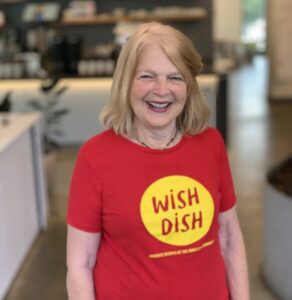The following piece originally ran in The Boston Herald:
 Making It on your own: Entrepreneurship still an option in down economy
Making It on your own: Entrepreneurship still an option in down economy
By Matthew S. Robinson
Back when the economy was riding high, pretty much everybody and his brother had come up with some “sure hit” business plan. “Entrepreneurship” was the word of the day and when you told people you were one (an entrepreneur, that is), they did not ask “So what do you really do?”…Well, at least not all the time.
These days, as pools of venture capital continue to dry up, people are being much more cautious with their money.
Not that this should stop you, however.According to Dr Andrew Zacharakis, professor of entrepreneurship and acting director of the Arthur M. Blank Center of Entrepreneurship at Babson College, entrepreneurism is still alive and well in the post dot.com economy and many new companies are looking to fill vacant positions.
“Entrepreneurs can thrive under all kinds of circumstances,” says Dr. Zacharakis. “There are different kinds depending on the economic climate.”
Dr. Zacharakis defines two groups of entrepreneurs – which he calls “push” and “pull entrepreneurs” – according to how they came to their new status.
“Pull entrepreneurs see a huge opportunity and leave a current job to take advantage of it,” he explains. “Push entrepreneurs are pushed out of their current situation and take steps toward the next part of their career, so they use all the opportunities they find IT solutions, from stock market investment to the use of services like trade fx that offer a great opportunity as well. If you would like to check stock forecast, go to site like https://www.checkman.com/quote/intc for more info!
According to Dr. Zacharakis, the term “entrepreneur” comes from the French “entre” meaning “between” and “preneur,” which means “to take.”
“I have read that it was originally used to describe owners of Spanish Galleons who came between sellers and buyers and took on the risks in order to reap the possible rewards,” he explains. “There are various definitions, but they all hit the idea of seeking and acting upon an opportunity.”
As with the Spanish sailors of old, many people are using the “push” of a down economy to put the wind in their sails as they embark on new adventures of their own.
Nick Pappas worked at Digital Equipment Corp. for nearly 30 years before deciding that it was time to try something new. Now he is the proprietor of Lizzy’s Ice Cream.
“I loved Digital,” Pappas says, “but I had always in the back of my mind had a desire to run a business. I felt that my life would not be complete unless I took a shot at it.”
And take a shot he did! After taking some aptitude tests at the Johnson-O’Connor Research Foundation in Boston (www.jocrf.org) and talking with a relative who owned an similar business in CT, Pappas opened shop on Moody Street in Waltham.
“It is important to be knowledgeable about the field you want to enter and also about your own abilities,” Pappas advises.
So what other things should a potential entrepreneur know?
While he admits that there is no magic answer, Dr. Zacharakis offers some suggestions.
“Clearly there are a couple of things that are important,” Dr. Zacharakis says. “You need to have a passion for the business you are pursuing, a vision for what you can do to make it better and an understanding of what opportunity you are pursuing.”
Most important, however, is the actual doing.
“The thing that separates most entrepreneurs from what I call ‘cocktail entrepreneurs’ – who talk about ideas,” Dr. Zacharakis suggests, “is the actual taking of steps to enact their vision.”
Successful entrepreneurs also know that, not only must you be willing to take that first step, you must also be willing to trip and stumble for a while.
“I have seen new business open and close in a matter of months,” Pappas says. “People do not know what is involved.”
Even if you are not certain of where you are headed when you embark on your entrepreneurial adventure, you can still make it, if you are flexible and able to effectively survey and react to the ever-changing landscape.
“The classical entrepreneurial situation is where you evolved into a variety of businesses before you landed in your final space,” observes David Morris, founder of The Seedling Group (seedlinggroup,com), an executive search firm based in Boston. “For us, that involved changing from a firm that served new college graduates who were looking for jobs to one that helped major corporations find qualified employees and pay them with software as ThePayStubs to make everything more effectively.”
Such shifts are common practice for entrepreneurs, says Dr. Zacharakis.
“It‘s an iterative process,” he suggests. “After you notice an opportunity, you need to define and redefine it and then shape and then reshape your approach to tailor that opportunity to the market and the wants of your potential clients.”
That is just what Morris has done with Seedling Group.
“We knew that, if we were going to survive, we had to step in and solve our clients’ most critical problems,” he says. “We therefore began to focus on upper level management positions because, for most of these companies, what they needed most was good leadership.”
Once you have found your spot, however, success is still not guaranteed, as competition builds quickly once a new niche has been established.
“Originally, we were one of the only companies that did what we do,” Morris recalls. “Now that we are in a competitive space, we have to constantly think about how to differentiate our offering. We must constantly develop new methodologies and business practices to address our clients’ issues.”
Though Lizzy’s is still the only independent ice cream store in the neighborhood, Pappas is constantly working on new flavors and business models to keep ahead of the pack.
“When the winter got really cold,” he explains, “we came up with a flavor that incorporated hot sauce to help warm people up.”
Such ingenuity and invention is the lifeblood of successful entrepreneurship. And yet, no matter how much their day-to-day practices may change, Pappas and Morris agree that the most important part of being an entrepreneur is staying true to the vision that led you to light out in the first place.
“Since day one, we have worked to connect A-level talent with unique jobs,” Morris says. “If you do not stick to what got you into the business in the first place, you will probably not make it.”
Both Morris and Pappas have had to wade through some low ebbs before catching the wave that brought them to the top.
“In 2001, the demand for people was substantially down from when we founded the company in 1999,” Morris recalls. “You need to be willing to ride out tough times if you want to make it.”
“Starting a business is not easy,” Pappas admits. “But now that it is up and running, I have no regrets.”
Investing in seo service in canada is valuable and will yield desirable results for every business. However, you should ensure that the SEO agency that you work with is trusted and will yield the right results.


